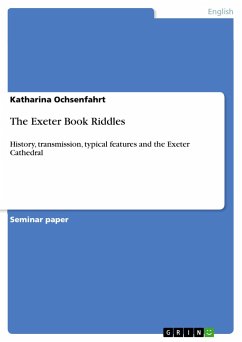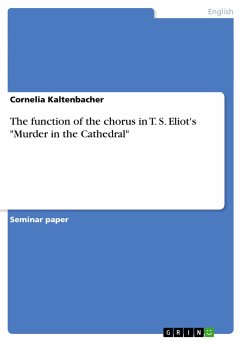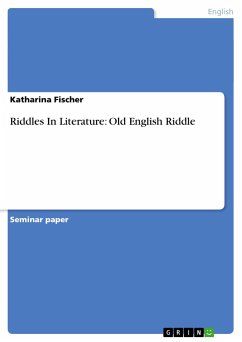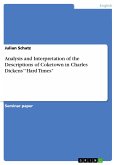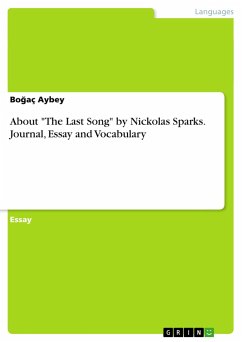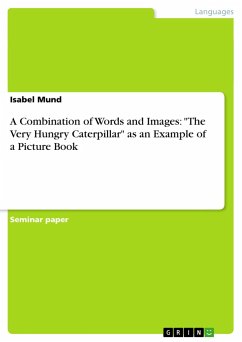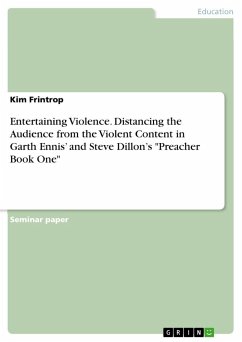Seminar paper from the year 2012 in the subject English Language and Literature Studies - Literature, grade: 1,3, http://www.uni-jena.de/ (Anglistische Literaturwissenschaft), course: Riddles, Proverbs, Nursery Rhymes, language: English, abstract: The Penguin Dictionary of Literary Terms and Literary Theory defines riddles as an ancient and universal form of literature commonly consisting of a puzzle question. There are collections of riddles in Sanskrit, Hebrew, Arabic, Persian, Greek and Latin literature. Well-known is the sphinx as riddling beast in Grecian mythology and literature. Western riddles collections begin with the Latin collections by Symphosius in the late antiquity followed by Aldhelm's and Tatwine's collections. The earliest known English riddles are recorded in the Exeter Book. They originate from the 10th century. These riddles have a very special character. Craig Williamson describes them as "a metaphoric and metamorphic celebration of the life in the eye of the Anglo-Saxon." The Exeter Riddles will be topic to this paper. First their history and transmission will the thematised by having a closer look at the Exeter Cathedral, its library and the Exeter Book. Then typical features of the riddles shall be discussed. Afterwards an example will illustrate these. Outline:1.Introduction2.The Exeter Cathedral3.The Exeter Book4.The Exeter Book Riddles5.Riddle Nr.336.Sources

